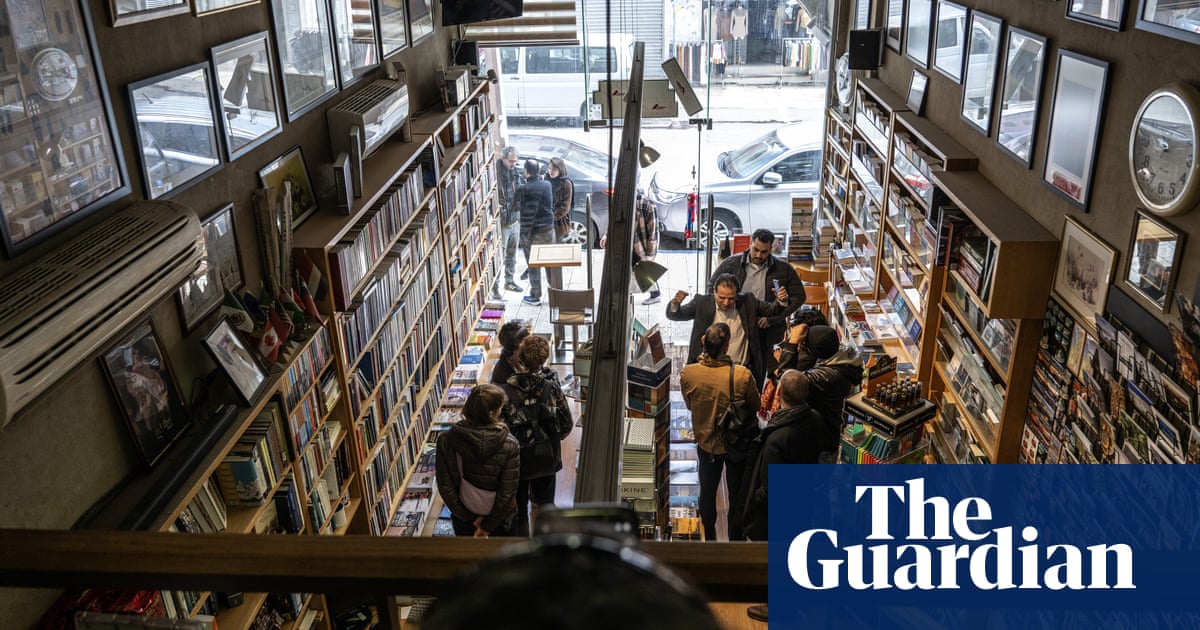A writer has left the Society of Authors (SoA) in protest after the UK’s largest writers’ body made a statement on a recent Israeli police raid on a Palestinian-owned bookstore without mentioning Israel, Palestine or the names of the booksellers who were arrested.
Matthew Teller, the author of books including Nine Quarters of Jerusalem, said the SoA’s statement “added insult to the injury” and was a “betrayal”, leading to him cancelling his membership on Tuesday.
The SoA’s statement was made in response to raids on two branches of the Educational Bookshop, the leading Palestinian-owned bookstore in occupied East Jerusalem, on 9 February. Mahmoud Muna – who co-edited the book Daybreak in Gaza with Teller – and his nephew, Ahmed Muna, were arrested and held in detention before being released under a five-day house arrest.
“We are concerned by recent press reports on the police raid of an educational bookshop in a country which is governed by a parliamentary democracy”, read the SoA’s statement, published on 13 February.
Teller said he would have hoped the SoA “would have taken this opportunity to illuminate the evils of state censorship and defend those who seek to practise freedom. Instead, it obscured understanding of the issues with platitudes and irrelevant assertions. It was an abject failure.
“I wholeheartedly support writers who are able to remain engaged with the SoA, and I recognise the value in urgent ongoing efforts to force change, but I, regretfully, can no longer tolerate such equivocation from a trade union that purports to represent me,” Teller said.
A representative from the SoA said the organisation “is saddened when any of our members decide to leave us”, but that “on this occasion, the SoA did not have enough information to comment on the situation concerning the bookshop in Jerusalem. Nevertheless, we considered that recent press reports provided an opportunity to the SoA to remind our members of its position on book bans.”
after newsletter promotion
More than 250 books were confiscated by police during the raid, most of which have since been returned. “They used Google Translate on the books, and anything they didn’t like, they took,” said Murad Muna, Mahmoud’s brother. “They took every book with a Palestinian flag on it.” Mahmoud’s 11-year-old daughter was helping in the shop at the time, and saw her father being taken away.
Mahmoud and Ahmed were initially charged with “inciting and supporting terrorism”; a police statement said that “detectives encountered numerous books containing inciteful material with nationalist Palestinian themes, including a children’s colouring book titled From the River to the Sea”. However, the charge was changed to “disturbing public order”, according to the booksellers’ lawyer.
The family-run Educational Bookshop opened in 1984 and has since become a hub of cultural life in Jerusalem, well-known among academics, journalists and tourists. After the raid, dozens of protesters gathered outside court, and at least nine diplomats from the UK and other European countries attended the hearing on 10 February.
More than £30,000 has since been raised via a GoFundMe campaign in support of the Educational Bookshop organised by the London-based Saqi Books, which publishes Daybreak in Gaza. Funds will go towards replacing books that were seized, fixing damages and paying booksellers until Mahmoud and Ahmed are allowed to return to work, as one of the terms of their 11 February release was that they must not return to bookselling for a minimum of 20 days.
Alongside fellow independent publisher Pluto Press, Saqi Books is also launching #BooksellingIsNotACrime Day on Saturday, with booksellers invited to put on events, donate a percentage of their profits to the fundraiser or create displays of Palestinian literature.
The group Fossil Free Books (FFB), which campaigns for “a genocide free, fossil free books industry” described the SoA’s statement as a “non-statement” of the kind that “does not challenge assaults on freedom of speech” but “confirms them”.
However, FFB recommended “staying engaged” with the SoA, suggesting that all authors, illustrators and translators join it, “not because it is currently the union we need”, but to “use its democratic structures to transform it into the union we deserve.”










